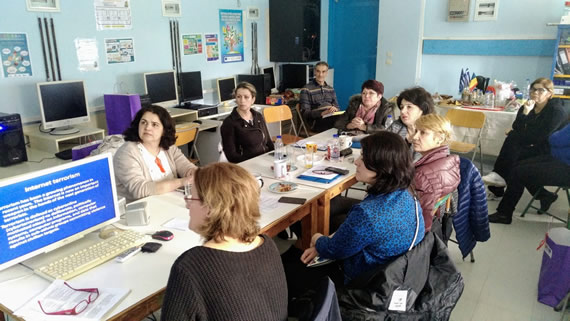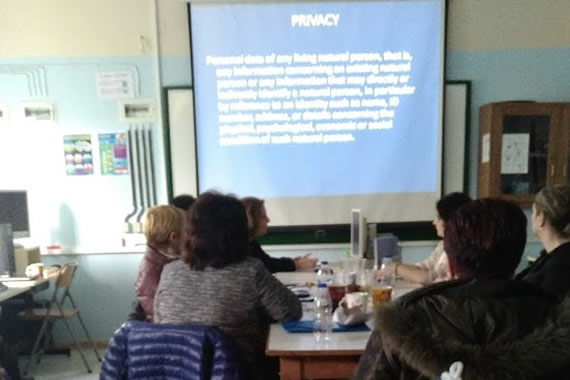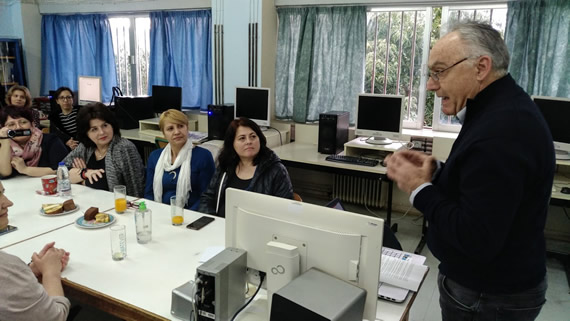C1. Look Over Cyber-security's Keywords & Lock!
1. Description of the LTT Mobility – Short-term exchanges of groups of pupils
The LTT session in Greece was structured in a 5 days program dedicated to the training of the participating teachers involved in the mobility. The program was focused on the cybersecurity essentials and on the basic concepts from this domain, since, nowadays, groups are able to collect and use massive amounts of data, by which they begin to amass power and influence. This data can be in the form of numbers, pictures, video, audio, or any type of data that can be digitized. These groups could become so powerful that they operate as though they are separate powers, creating separate cybersecurity domains. Companies such as Google, Facebook, and LinkedIn, could be considered to be data domains in our cyber world. Extending the analogy, the people who work at these digital companies could be considered cybersecurity experts. Therefore, educators must be the first category of recipients of these specific information in order to transmit to their students basic concepts and ideas regarding the cybersecurity world.
In order to be able to create a successful awareness campaign among students, teachers of different specialties, ICT included attended a training program that included the following topics:
Day 1- Presentation of the National Cybersecurity Law. Cybersecurity Essentials: attacks, concepts and techniques, malware and malicious code.
Day 2- Workshop regarding the simulation of cyber-attacks.
Day 3- Cyber-bullying: presentation of the phenomenon at a national level and in the hosting school. Talks with the psychologist of the school or other relevant figures from the area/ NGO’s etcetera.
Day 4- Cyber-bullying: prevention (techniques, best practices)
Day 5- Meetings with Cybersecurity and GDPR specialist to present best practices from their companies or universities.
After attending this meeting, the participants acquired basic concepts about cybersecurity and how to link them to their activity with students, and became aware of the importance of following certain steps when working with students on the online platforms and different websites during and after the lessons inside the school. The participants got acquainted with the concept of “cyber-bullying” and how to prevent it, shared some personal experiences and good practices that can improve similar situations in their school. At the end of the meeting the participants obtained as outcomes: 1 presentation of the cybersecurity law, 1 handbook on the basic concepts of Cybersecurity, 1 guidelines about the prevention of cyber-bullying for teachers and students, 1 draft of the cyber-bullying campaign dedicated to students. The training session was integrated within the school’s normal activities and students from the school were involved during the workshops and frontal discussions and presentations, even more the students provided with personal situations regarding cybersecurity and cyberbullying they have encountered in the past.
Results
Participants: 6 professors.
Outcomes:
- 1 presentation of the cybersecurity law: Greece (PDFs)
- 1 handbook on the basic concepts of Cybersecurity: Cybersecurity Essentials. Common Terms for Common People (PDF)
- 1 guidelines about the prevention of cyber-bullying for teachers and students: Diagram detailing the procedure for fighting bullying (PDF); Video material on fighting cyberbullying
- 1 draft of the cyber-bullying campaign dedicated to students: Cyberbullying Awareness Campaign (PDF) – see campaign flyer below.
Extra outcomes:





